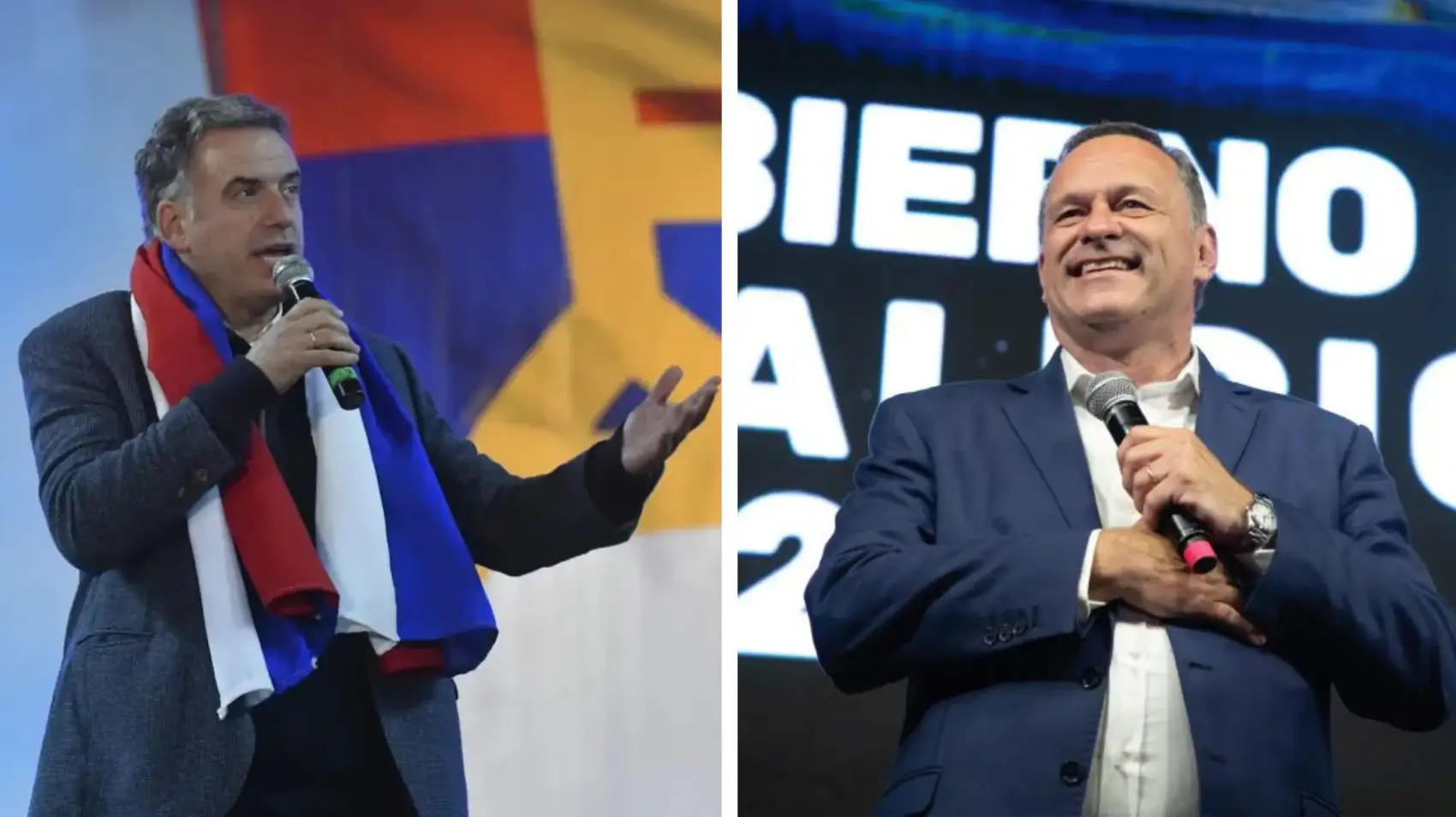The first round of the national elections (October 27) paved the way for a runoff and revealed the existence of two well-defined political blocs fighting for the future of a country that seems to reject extreme polarization and political violence.
With a turnout of over 90%, Uruguayans reaffirmed their democratic tradition. There were no reports of incidents or acts of violence during the day, which once again consolidated the image of political stability that characterizes the country.
However, the most interesting aspect of this electoral cycle is not the figures in competition – two candidates with a moderate profile and extensive public career – but what each one represents in terms of management models and vision of the country.
Uruguay, faithful to its pragmatism , was once again divided between two solid electoral blocks: on the one hand, the Frente Amplio, which brings together the left under a unified banner; on the other, the Republican Coalition , a conglomerate of center-right parties that seeks to continue the course charted by the government of Luis Lacalle Pou.
Civil service formulas
The runoff on November 24 will not be a dispute between an outsider candidate and another from the system, but between two men with extensive political experience. Both Orsi and Delgado have come a long way in their respective parties. Orsi, as mayor of the department of Canelones, has established himself as a prominent figure in the FA. Delgado, for his part, was a senator and held the position of Secretary of the Presidency under the administration of Lacalle Pou, becoming one of his most trusted men.
The campaign has been relatively calm, without any major surprises, and both candidates have kept a low profile in the media. However, the real background of this election goes beyond their personalities. What is at stake is the continuity or change of the management model that has prevailed in the last five years. Citizens will have to decide whether to ratify the course that the country has followed with the CR or whether to opt for a return to a FA government, which was in power between 2005 and 2020.
Republican coalition
In the first round, the CR won 47.3% of the votes , while the FA won 43.9%. This marks a recovery of more than 4% for the left compared to the 2019 elections, but it was not enough to reach the majority they had hoped for. On the other hand, the results show a rearrangement within the Republican Coalition, since Cabildo Abierto, one of its allied parties, lost its three seats in the Senate, while the Colorado Party recovered two.
This change in the configuration of forces within the CR has important consequences for the way Delgado negotiates and his leadership, who will have to manage new dynamics if he manages to gain access to the presidency: his main interlocutor will be the Colorados.
Despite these not insignificant internal adjustments in the CR, Delgado has been well positioned for the runoff , with significant support thanks to the management of Lacalle Pou, who maintains a popularity of over 50%.
Meanwhile, the vote for Gustavo Salle , an anti-system candidate who created the Sovereign Identity party , known for openly opposing the 2030 agenda and COVID-19 vaccines, came as a surprise. His performance earned him two seats in the House of Representatives, which could complicate the approval of future laws. Salle has already announced that he will vote null in the runoff, which reinforces the uncertainty about the final results.
Little climate of change
There were also two referendums in Uruguay’s general elections. One against the social security reform carried out by the Lacalle Pou administration and another to approve the possibility of carrying out nighttime searches in homes under a judge’s order. Both did not achieve the 50% to be approved. Beyond the figures, the resounding rejection of the referendum on the repeal of the current pension system was a clear indicator of where the majority of the country seems to be leaning. The setback with more than 60% of the votes against the repeal promoted by the labor union and the most radical sectors of the left reinforces the idea that Uruguayans prefer to maintain the stability of the course.
This plebiscite represented a clear victory for Lacalle Pou , who defended a clearly unpopular but necessary reform , which included, among other things, raising the retirement age from 60 to 65 years.
The left
Although the ruling party, with Delgado at the helm, came out well in the first round, it is by no means a guarantee of victory in November. The FA has a solid electoral base, and its leader, Yamandú Orsi, has the explicit support of the former president and leader of the Popular Participation Movement, José “Pepe” Mujica , who remains an influential figure in Uruguayan politics.
The FA managed to secure 16 seats in the Senate. This simple majority gives it the power to veto key decisions , such as the appointment of ambassadors or the promotion of generals in the Army, which is no small feat.
Both blocs face a major challenge heading into the runoff: mobilizing voters from the other bloc or those who cast blank or spoiled votes in the first round. These voters will be the ones who will decide the outcome in November.
On the other hand, Delgado also has the advantage of representing a government that is generally well-regarded by the majority of public opinion. Also in his favour is the perception that there is no atmosphere of change in the country. Orsi, on the other hand, will have to convince people that his government project represents a renewal , but without falling into the radical populist discourses so tempting these days in Latin America.
Four decisive weeks
The next few weeks leading up to the runoff will be decisive. The ability of both candidates to attract votes outside their traditional bases, coupled with a mandatory debate that both candidates must attend, will determine the course and destiny of the campaign.
At the end of the night of the first round there was joy in the ranks of the coalition and worried faces among the opposition of the FA. Some celebrated cautiously, others took a deep breath and dedicated themselves to analyzing the fine numbers that are not bad either. The end is uncertain and defines a non-captive electorate that is very volatile and unpredictable. The dice are not cast. At this moment they are nervously shaking in the glass.
What seems clear is that, whoever wins in November, Uruguay will continue to demonstrate to the world its commitment to democracy and institutional stability.
*Article originally published in Diálogo Político. Original article in Spanish. Translation performed by artificial intelligence, according to Diálogo Político.













